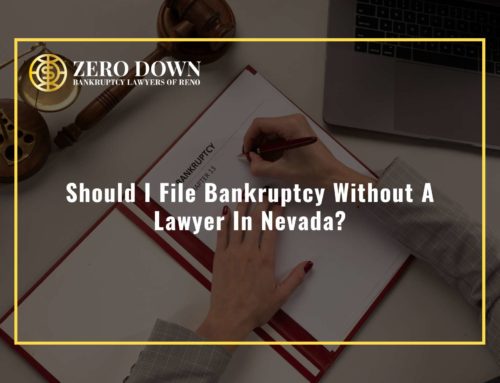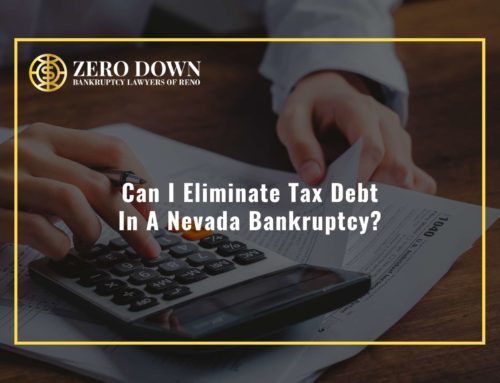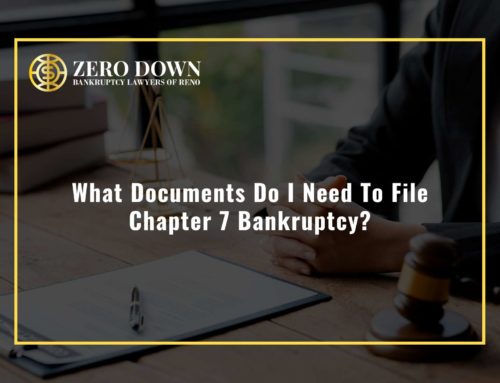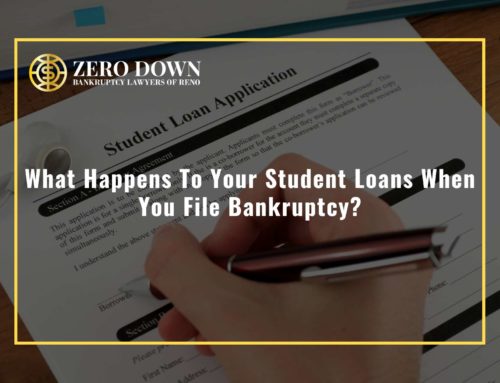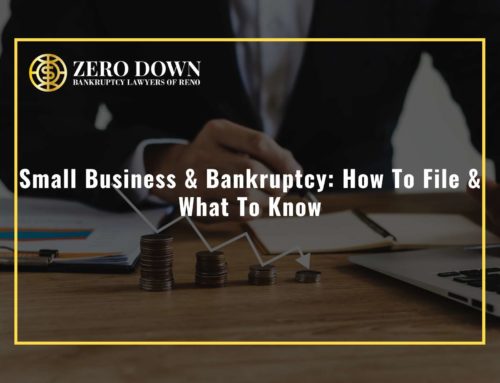Is Your 401(k) Plan Protected In Case Of Bankruptcy?
Does Filing For Bankruptcy Affect My Retirement Accounts?
If you’re thinking about filing for bankruptcy, you’re probably wondering if significant assets, such as your 401(k) or IRA retirement accounts, are protected from seizure. It’s always important to get personalized advice and information from your Reno bankruptcy attorney, but the good news is that in the vast majority of cases, retirement funds are separate from the bankruptcy estate and are protected from dissolution to pay your debts.

Should I Use My Retirement Funds To Pay My Debts?
Some individuals wonder if they should use their retirement funds to pay off their debts in hopes of avoiding bankruptcy. Although this is technically an option, it’s not necessarily the best choice. There are many disadvantages to taking money off your 401(k) before retirement, including:
- Tax penalties
- Income tax on the funds, which can be as high as 22%
- Penalties for early withdrawal, typically around 10%
- Losing any funds your employer is matching
- Losing interest on the full value of your retirement account
Additionally, if you end up filing for bankruptcy after using your 401(k) funds to pay off some of your debts, your retirement account may lose its protection and be seized to pay the remaining balances.
What Are Protected & Unprotected Assets In Bankruptcy?
Certain assets are “protected” in bankruptcy which means they are separate from your estate and safe from seizure. Exactly which assets this includes will depend on state exemptions, your use of wildcard exemptions, and how much money you are allowed to keep after you’ve filed for bankruptcy. Your Reno bankruptcy lawyer can guide you through this process and help you determine how to maximize the benefits of bankruptcy for your unique situation.
If you file a Chapter 7 bankruptcy, unprotected assets can be sold by the bankruptcy trustee and used to pay your debts. Unprotected assets can be paid for through a debt repayment plan if you opt for a Chapter 13 bankruptcy.
Some assets that are protected in bankruptcy generally include:
- Employee Retirement Income Security Act plans (ERISA)
- 401(k) accounts
- 403(b) accounts
- Roth IRAs, SEP IRAs, and SIMPLE IRAs
- Profit-sharing plans
- Defined benefit plans
Savings accounts, investments, and stocks are not protected accounts, which means you can use them to pay your debts before filing, or they can be seized by the bankruptcy trustee.
What About Using My Retirement Account To Pay One Creditor?
For some people, it may make sense to withdraw from a retirement account to pay a debt to one creditor. This can only be done when filing a Chapter 7 bankruptcy and can only be used to be one creditor. However, this is not advisable for everyone. Before you choose to do this and put your retirement at risk, talk with an experienced bankruptcy lawyer for advice.
Using some retirement account funds to finish off a car loan or stop a debt collection lawsuit can be a good idea in some cases. If you owe a personal loan to a family member or friend, using your retirement account to pay back the loan might be the best solution. Once you’ve filed for bankruptcy, your debts will be legally discharged, and you may not be able to repay that personal loan until far into the future.
Because withdrawing retirement funds to pay one creditor can be considered preferential treatment to one of your creditors, the whole transaction can be voided by the bankruptcy trustee. The trustee can even take the money back and distribute it evenly among your creditors. Consulting about your situation with a Reno bankruptcy attorney before opting to withdraw retirement funds for debt payments is essential to avoid unintended consequences after you’ve filed.
What Happens If I File For Bankruptcy After I’ve Retired?
If you are retired and receiving retirement income from your accounts, your accounts may still be protected, but your bankruptcy process will be different. Social Security benefits are not considered income and are not considered in either chapter 7 or Chapter 13 bankruptcy.
Filing for bankruptcy after retirement is possible, but it can be a complicated situation that should be discussed with your Reno bankruptcy lawyer before you make any decisions.
Get Answers From A Trusted Bankruptcy Attorney In Reno
Bankruptcy can be confusing, especially if you are already stressed or overwhelmed with debt collection attempts. If you’re thinking about filing for bankruptcy in Nevada, contact Zero Down Bankruptcy Lawyers of Reno. We are experts in Nevada bankruptcy law and stay up to date on all of the changes, exemptions, and facets of the process so we can provide the best legal advice for our clients. Our knowledgeable attorneys are ready to help you understand which assets are protected, how you can maximize protections and exemptions, and what you need to know before you file for bankruptcy. Our services are affordable with no money required to get started. Contact our office today to schedule your free, confidential evaluation and get ready for a fresh start!
Zero Down Bankruptcy Lawyers Of Reno
Email: info@renobankruptcylawyer.co
Phone: (702) 842-0700
Las Vegas:
5552 Ashley Creek St
Las Vegas, NV 89135
North Las Vegas:
7251 W Lake Mead Blvd
Las Vegas, NV 89128
Henderson:
1489 W Warm Springs Rd #110
Henderson, NV 89014


